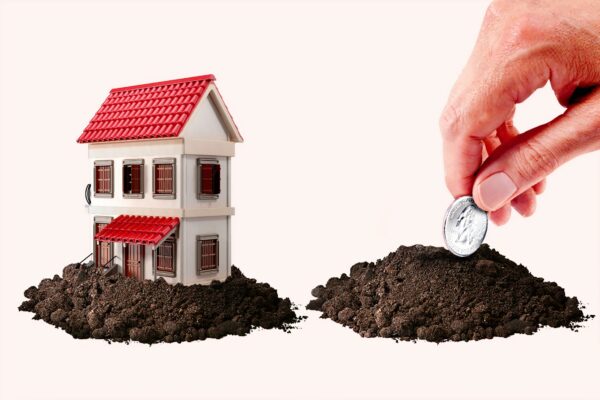Money tight because of COVID-19? These relief programs can help
There’s a growing list of government-sponsored and private relief programs to help U.S. households affected by COVID-19.
Below are financial aid programs currently available to U.S. homeowners, renters, and those who have recently become unemployed.
Note: COVID-19 is changing rapidly and new programs are coming out by the day. This list is current as of April 7, 2020.
Coronavirus mortgage relief programs
How to get help: First, contact your loan servicer
Most help will be available only to those who ask for it. And the organization you need to ask — at least, at first — is your loan servicer.
You should work with your loan servicer to discover programs that may help you.
Not all types of mortgages offer the same relief, and there may be state or local assistance you can tap.
But don’t rely solely on the knowledge of the agent to whom you speak. Do some research of your own online. You’ll find some links below. And Google could be your friend.
“Loan servicer” vs “lender” — who to call
To get help postponing your mortgage payments or restructuring your loan, you need to speak to your “mortgage servicer.” This is the company that collects monthly payments and manages your account.
In many cases, this is not the same company as the lender or “loan originator” — the company that set up your loan.
>> Dig out your last mortgage statement. Whoever you send your payment to is the loan servicer. That’s the number you should call.
Mortgage relief for conventional loans (Fannie Mae and Freddie Mac)
Fannie Mae and Freddie Mac were the first to unveil programs for those affected by the coronavirus.
Providing you agree with your lender on an assistance package, you could be in line for:
- Mortgage forbearance (reduced or no payments) for up to 12 months
- Penalties and late fees waived on issues covered by your forbearance agreement
- No reporting to credit bureaus on agreed issues
- Loan modifications that could allow you the same or lower monthly payments when things return to normal
Thanks to the recent CARES (Coronavirus Aid, Relief, and Economic Security) act, it’s even easier for homeowners to get this relief.
Under CARES, homeowners do not have to prove that they’re in financial distress in order to get mortgage relief. That means no extensive documentation.
Homeowners simply have to “claim” they’re going through financial hardship by sending in a hardship letter saying they’ve been affected by COVID-19.
>> To request mortgage relief, use this free tool to generate a “hardship letter”
These programs could offer serious help. Just be aware that there are both pros and cons to forbearance.
Mortgage relief for government-backed loans (FHA, VA, USDA)
Under the CARES act, government-backed loans are also eligible for forbearance.
Just like for conventional loans, those with government-backed loans simply have to ask their lender for forbearance, and send in a letter stating they’re going through financial hardship.
>> To request mortgage relief, use this free tool to generate a “hardship letter”
In this way, government-backed loan holders can get forbearance for up to one year (180 days, with one extension of 180 days). This applies to:
- FHA loans
- VA loans
- USDA loans
Remember, you still have to ask for forbearance under the CARES act. It will NOT be automatically applied to any loans.
Relief programs from banks and lenders
Many big mortgage lenders have already announced help for customers who are financially affected by COVID-19. Below are just a few that have put out official announcements.
Don’t panic if your lender isn’t among those shown. For reasons of space, we can only include a selection of the biggest companies. There’s a good chance your lender is already working on a relief program, too. Just ask.
When you call or go online, remember the lending industry’s new unofficial slogan: “When people need help, just give them help.”
It’s never pleasant, sharing your woes with a complete stranger. But now’s the time to set such considerations aside. And certainly don’t wait until things get bad.
Federal and state mortgage relief programs
On March 21, President Donald Trump ordered all foreclosures and evictions to cease for 60 days nationwide.
It’s possible state-level relief programs could become more widespread, too.
On March 19, Gov. Andrew Cuomo of New York announced he was imposing new rules across his state. “We’re not exempting people from the mortgage payments, we’re just adjusting the mortgage to include those payments on the backend,” he said.
The measures he announced were to last 90 days and included the measures we list above for Fannie and Freddie borrowers.
At the time of writing, no other state has introduced such a sweeping program of mortgage relief.
>> But at least 30 states have temporarily halted evictions, either statewide or in a few major cities. Use the link below to find updates for your state.
Relief programs for renters
State bans on evictions apply to renters as well as homeowners. So there are some protections in place, albeit limited ones.
List of states and cities that have banned evictions
But, so far, there seem to be no programs designed to provide financial help to renters generally — at least beyond those listed below, which apply to virtually all Americans.
So, for now, renters will need to communicate with their lenders and try to work out solutions on an individual basis.
>> Call your landlord ASAP if the coronavirus means you’re sick, laid off, or otherwise unable to pay your rent.
Remember: If you forestall payments, they’ll likely be due as soon as coronavirus troubles pass. So make sure you and your landlord are clear on two things:
- How to handle missed or late rent payments during COVID-19
- How repayment for missed rent will be handled once COVID-19 ends
Get the agreement in writing if possible.
Also, research measures your state has enacted to protect renters and make sure your landlord is aware of those.
$1,200 stimulus checks coming soon (hopefully)
Part of the recent coronavirus stimulus package from Congress included direct checks for American households.
Each American adult could be in line for up to $1,200 from the federal government, depending on income.
Those who make $75,000 or less will receive the full amount, with smaller checks written for those who earn up to $99,000 per year.
Checks will also be given to heads of households who earn under $146,500, and those who file jointly without children and earn less than $198,000.
Supposedly, checks could go out in as little as two weeks for those who set up direct deposit on their 2018 tax returns.
If you haven’t already set up direct deposit with the IRS, there’s still time to do so.
Learn how to set up direct deposit with the IRS here
Unemployment and other aid programs
Federal and state governments are working hard to provide help and advice to residents. Here are a few programs that have come out so far.
Unemployment assistance from Congress
Congress is currently working on passing a robust coronavirus stimulus plan. But its current measure, H.R. 6201, has already put some benefits in place:
- $1 billion in funding for food assistance programs
- Up to two weeks paid sick leave for government employees and those who work for companies with 500 employees or fewer
- 12 weeks of job-protected paid family and medical leave for government employees and companies with 500 employees or fewer. If you qualify, you should get at least two-thirds of your regular payment rate
These programs are restricted to certain classes of employees. But others have been passed at the state level that are wider-reaching.
Unemployment assistance from state governments
Some states have already unveiled initiatives to help employers retain workers who’d otherwise be laid off, and to make lives easier for those who have been and are unemployed.
>> Visit your state government’s website to see what help’s on offer where you are.
For example, Washington State says, “… unemployment benefits can be received through, or while covered by, Shared Work, Partial Unemployment and Standby (which allow certain workers to collect unemployment while remaining with their employers and not actively seeking other jobs).”
And its Employment Security Department (ESD) is offering paid leave to those who have “a serious health condition” or have to care for similarly sick family members. COVID-19 counts.
The ESD also provides Rapid Response services that help the newly unemployed to access unemployment benefits and to find a new job quickly, including, if necessary, through retraining.
>> If you live in New York, the Federal Reserve Bank of New York is also providing a hub or portal of COVID-19-related resources.
COVID-19 testing is now free
While there are still fewer test kits available than doctors would like, there’s good news for those who lack medical insurance. All COVID-19 tests are now free.
The California Medical Association (CMA) reports this nationwide initiative means, “The federal government will pay for 100% of the cost of COVID-19 testing and associated physician visits for these uninsured patients and will not require a state match.”
Should you tap your emergency savings?
Many of us have no emergency fund at all. If our income dries up, we won’t be able to make our very next mortgage payment.
But suppose you do have a fund that provides you with a cushion for months to come. There’s no point in having one of those if you don’t use it when there’s an emergency. The clue’s in the name.
However, having said that, we’re as yet unsure about how long the economic effects of COVID-19 will last.
>> You may wish to stretch the savings you have by still taking advantage of assistance available from your lender and other organizations.
Look out for fake stimulus scams
Unfortunately, some con merchants see this national emergency as an opportunity rather than a tragedy.
Already, the Federal Trade Commission is having to warn Americans about coronavirus scams generally, and those relating to stimulus checks that are likely to be sent out in particular.
>> The FTC reminds us: “The government will not call to ask for your Social Security number, bank account, or credit card number. Anyone who does is a scammer.”
And it warns equally against those asking for any form of upfront payment or promising to get you your money quicker. Again, those are scams.
Trustworthy resources for COVID-19 information
The federal government’s website has a portal to numerous sources of information on COVID-19. Better to rely on them than social media or even some media outlets.
>> Coronavirus resources portal
Among other things, these resources include:
- CDC COVID-19 information
- Information for seniors and people with disabilities
- Information for Medicare recipients
- Information for Veterans
- Guidance for air travel
- Info about the government’s response to COVID-19
Your state’s website likely has a similar page for local services.
Times are likely to be hard for many of us. But knowing where we truly stand can make dealing with those easier.
So whether you need mortgage relief or reassurance about health matters, be sure to choose trustworthy sources — and to ask for help as soon as you think you’re going to need it.




